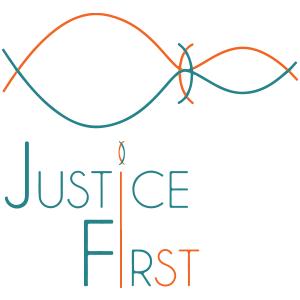Justice First Case Study
Maduka
Maduka arrived in the UK in 2005 on a visit visa. Following the expiry of this visa, he remained in the UK without leave.
He was arrested and detained in 2011. After a series of different immigration applications, all of which were refused (including appeals), our Maduka claimed asylum on the 19th October 2015. The asylum claim and subsequent appeals were all refused, which resulted in the client being referred to Justice First from Rainbow Home in Newcastle Upon Tyne in October 2020. Rainbow Home is an organisation that supports LGBT+ asylum seekers in the North East of England.
After meeting with Maduka and realising his case was complex, we made a request to the Home Office for his immigration file, also known as a Subject Access Request. This arrived in December 2020 and we began to prepare his fresh claim.
This was mainly based on Article 3 of the Human Rights Act due to his medical condition. Maduka has been a long-time sufferer of HIV after discovering he was HIV positive shortly after arriving in the UK following a routine blood test. He requires specific treatment in the form of Antiretroviral therapies to prevent his health from declining. As Maduka was a Nigerian national and also part of the LGBTQ+ community, we were tasked with carrying out extensive research into the healthcare system within Nigeria, specifically, the provision and accessibility of HIV treatment and secondly, exploring the treatment of those from the LGBTQ+ community within the country more generally.
We argued that it would be a breach of Maduka’s Article 3 human right (Prohibition from inhumane and degrading treatment) if he were to be returned to Nigeria, due to the direct decline in his health through the lack of adequate comparable treatment available and the treatment of those from the LGBTQ+ community, including the stigma and discrimination faced by those who are HIV positive within the country. His fresh claim was submitted in January 2021.
In July 2021 the Home Office requested further medical information. Which we duly collected and provided. This highlighted once again, the direct effect on the clients health should he be returned to a country where the specialist treatment was not available to him.
We were delighted to receive a decision from the Home Office on the 7th January 2022, granting Maduka refugee status, for an initial 5 years. Although we recognise that the hard work that was put into this case ultimately led to a successful grant of refugee status, we also believe that the length of time Maduka had remained in the UK without leave is very poignant. This is because although it might seem logical to think that if Maduka had claimed asylum at an earlier date, that he would have been granted, some form of protection-based leave, the reality is that this is unlikely. There was new caselaw handed down in relation to Article 3 and medical treatment in April 2020 (AM Zimbabwe) which gave rise to a chance of this case succeeding where it had little chance of success beforehand.
This shows how vital it is that we remain up to date and how suddenly the law, country guidance and people’s lives can change. More importantly, it demonstrates a need for patience, commitment and hope, both for us as an organisation and for the clients we serve.



